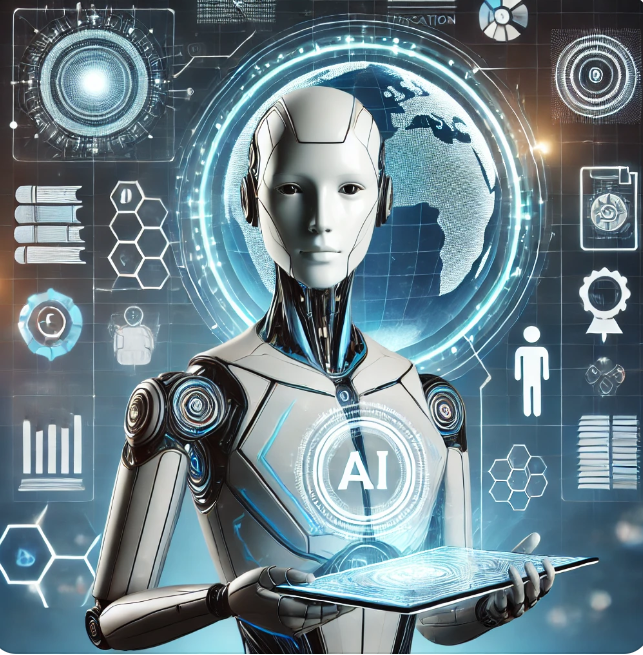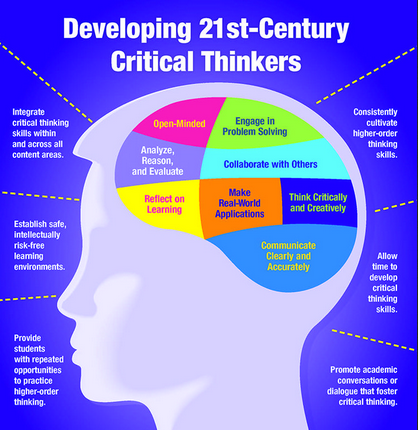The Impact and Potential of AI in Education
Introduction
Imagine a classroom where each student receives personalized attention, instant feedback, and adaptive learning experiences. This is the promise of artificial intelligence (AI) in education. As AI technologies advance rapidly, they are poised to transform the way we teach and learn. In this article, we will explore the current applications, benefits, challenges, and future potential of AI in the field of education.
Background
AI has been making significant strides in various industries, and education is no exception. From intelligent tutoring systems to automated grading, AI is already being used to enhance learning experiences and improve educational outcomes. However, the full potential of AI in education is yet to be realized.
Thesis
The integration of AI in education has the potential to revolutionize teaching and learning by providing personalized, adaptive, and engaging experiences for students while assisting educators in their roles. However, careful consideration must be given to the ethical implications and potential drawbacks of relying on AI in educational settings.
Current Applications of AI in Education
Intelligent Tutoring Systems
Intelligent tutoring systems (ITS) use AI to provide personalized instruction and feedback to students. These systems adapt to each student’s learning style, pace, and level of understanding, offering targeted support and guidance. ITS can help students master complex concepts and skills more efficiently by providing immediate feedback and adjusting the difficulty of the material based on the student’s performance.
Automated Grading and Assessment
AI-powered tools can automatically grade assignments, quizzes, and exams, saving educators valuable time and effort. These tools can also provide detailed analytics on student performance, helping teachers identify areas where students struggle and tailor their instruction accordingly. Automated grading ensures consistency and objectivity in the evaluation process.
Benefits of AI in Education
Personalized Learning Experiences
One of the most significant benefits of AI in education is its ability to provide personalized learning experiences. AI algorithms can analyze vast amounts of data on student performance, learning preferences, and engagement levels to create customized learning paths for each student. This approach ensures that students receive the support and challenges they need to succeed.
Enhanced Engagement and Motivation
AI-powered educational tools can make learning more engaging and interactive. Gamification elements, adaptive challenges, and immediate feedback can boost student motivation and encourage them to take an active role in their learning. AI can also facilitate collaborative learning experiences by connecting students with similar interests and skill levels.
Increased Efficiency for Educators
AI can assist educators in various tasks, such as grading, lesson planning, and student assessment. By automating repetitive and time-consuming tasks, AI frees up educators to focus on more critical aspects of teaching, such as providing individual support, fostering creativity, and developing higher-order thinking skills in students.
Challenges and Ethical Considerations
Ensuring Equitable Access
One of the challenges in implementing AI in education is ensuring equitable access to technology and resources. Students from disadvantaged backgrounds may not have the same access to AI-powered tools and devices, which could widen the achievement gap. Efforts must be made to provide equal opportunities for all students to benefit from AI in education.
Addressing Privacy Concerns
The collection and use of student data raise privacy concerns. AI systems require vast amounts of data to function effectively, but safeguarding student privacy and ensuring the ethical use of their data is crucial. Clear guidelines and regulations must be established to protect student privacy rights and prevent misuse of their personal information.
Maintaining Human Connection
While AI can enhance learning experiences, it is essential to maintain the human connection in education. The role of educators goes beyond imparting knowledge; they provide emotional support, foster social skills, and serve as role models. Striking a balance between AI-assisted learning and human interaction is crucial to ensure a well-rounded educational experience.
Resources for Educators and Students
To help educators and students navigate the world of AI in education, we have created a comprehensive Social Media Regulation Activities and Worksheets Bundle. This bundle includes engaging activities, discussion prompts, and worksheets that explore the impact of AI on education and encourage critical thinking about the ethical implications of AI in learning environments.
Use of AI in Education- Information Packet
Conclusion
The integration of AI in education holds immense potential to transform teaching and learning. By providing personalized experiences, enhancing engagement, and assisting educators, AI can contribute to better educational outcomes. However, it is crucial to address the challenges and ethical considerations associated with AI in education, such as ensuring equitable access, protecting student privacy, and maintaining the human connection in learning.
As we move forward, educators, policymakers, and technology developers must collaborate to harness the power of AI in education while prioritizing the well-being and success of students. With thoughtful implementation and continuous evaluation, AI can become a valuable tool in shaping the future of education and empowering learners to reach their full potential.





